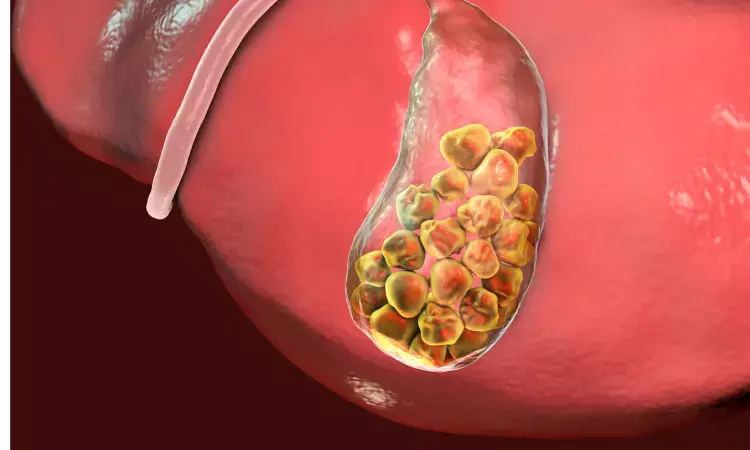- Home
- Medical news & Guidelines
- Anesthesiology
- Cardiology and CTVS
- Critical Care
- Dentistry
- Dermatology
- Diabetes and Endocrinology
- ENT
- Gastroenterology
- Medicine
- Nephrology
- Neurology
- Obstretics-Gynaecology
- Oncology
- Ophthalmology
- Orthopaedics
- Pediatrics-Neonatology
- Psychiatry
- Pulmonology
- Radiology
- Surgery
- Urology
- Laboratory Medicine
- Diet
- Nursing
- Paramedical
- Physiotherapy
- Health news
- Fact Check
- Bone Health Fact Check
- Brain Health Fact Check
- Cancer Related Fact Check
- Child Care Fact Check
- Dental and oral health fact check
- Diabetes and metabolic health fact check
- Diet and Nutrition Fact Check
- Eye and ENT Care Fact Check
- Fitness fact check
- Gut health fact check
- Heart health fact check
- Kidney health fact check
- Medical education fact check
- Men's health fact check
- Respiratory fact check
- Skin and hair care fact check
- Vaccine and Immunization fact check
- Women's health fact check
- AYUSH
- State News
- Andaman and Nicobar Islands
- Andhra Pradesh
- Arunachal Pradesh
- Assam
- Bihar
- Chandigarh
- Chattisgarh
- Dadra and Nagar Haveli
- Daman and Diu
- Delhi
- Goa
- Gujarat
- Haryana
- Himachal Pradesh
- Jammu & Kashmir
- Jharkhand
- Karnataka
- Kerala
- Ladakh
- Lakshadweep
- Madhya Pradesh
- Maharashtra
- Manipur
- Meghalaya
- Mizoram
- Nagaland
- Odisha
- Puducherry
- Punjab
- Rajasthan
- Sikkim
- Tamil Nadu
- Telangana
- Tripura
- Uttar Pradesh
- Uttrakhand
- West Bengal
- Medical Education
- Industry
Cholelithiasis tied to increased risk of prostate cancer, suggests study

CHINA: A recent study published in BMC Urology evidenced the positive association between Cholelithiasis and increased risk of prostate cancer.
Risk factors promoting gallstone formation include genetics, environmental factors, diabetes, and metabolic syndrome. High cholesterol accumulates in the cancer tissues and is associated with the risk of prostate cancer. Cancer cells rely on cholesterol, which satisfies the increased nutrient demands, and in this manner, their uncontrolled growth is supported, thereby favoring tumor development and progression. Evidence suggests a lower possibility of progressive prostate carcinoma (PCa) in men on statin therapy after prostatectomy.
Prostate carcinoma cases are detected annually by more than 1275000, being the second most common malignancy and the leading cause of mortality among men. The risk factors include ethnicity, germline mutation, and dietetic factors.It has a prevalence rate of 5 to 15 % (in the western population) and is a significant public health problem.
According to epidemiologic studies, Cholelithiasis has been associated with the risk of prostate cancer in terms of development and procession. Still, the results and the relationship between the two studies remain controversial.
To assess more on the unknown research topic, a hospital-based study was conducted by Dr. Ya-Dong Li from the Department of Urology at The Second Affiliated Hospital of the Chongqing Medical University, with a team of the researcher to analyze the relationship between Cholelithiasis and risk of prostate cancer. A systematic meta-analysis of published studies and our case-control analysis was performed to evaluate this controversial association.
A subgroup analysis was performed based on the study regions, BMI level, gallstones, and cholecystectomy.
The critical points of the study are:
• The medical records of the Second Affiliated Hospital of Chongqing Medical University Hospital were reviewed for the study.
• A total of 7 studies involving 80,403 individuals were included in the meta-analysis.
• There were 221 cases of newly diagnosed PCa with an average age of 72.29 ± 8.02 years and 219 controls of age 71.14 ± 7.68 years recruited in the study.
• Cases were likelier to have a history of diabetes and cholelithiasis with a P value of < 0.05 than controls.
• Cholelithiasis was significantly associated with a higher risk of PCa with an Odds ratio (OR) of 1.98. The adjusted OR was 1.87 after multivariable adjustment for confounding factors.
• OR was 2.53 for the association of gallstones with PCa, which was significant.
• Cholelithiasis was associated with an increased risk of PCa with a Relative Ratio (RR) of 1.35and the evidence was moderate-quality.
• The RR was 1.54 and 95 % confidence interval for men with Cholelithiasis having lower BMI and were at a higher risk of PCa.
• Cholecystectomy was not related to the incidence of PCa and was increased in patients with gallstones.
• Subgroup analysis showed that Cholelithiasis was associated with PCa in Europe and Asia with RR of 1.24 and 1.32.
The researcher wrote, "We suggest an association between Cholelithiasis and the risk of PCa, and There is no significant relationship between cholecystectomy therapy and PCa risk. Further studies should be conducted to add depth to the research."
Our study had strengths related to comprehensive estimation between the association and use of the GRADE approach, thereby ensuring the quality of the evidence.
Reference:
Li YD, Ren ZJ, Gao L, Ma JH, Gou YQ, Tan W, Liu C. Cholelithiasis increased prostate cancer risk: evidence from a case-control study and a meta-analysis. BMC Urol. 2022 Oct 3;22(1):160. DOI: 10.1186/s12894-022-01110-8.
BDS, MDS in Periodontics and Implantology
Dr. Aditi Yadav is a BDS, MDS in Periodontics and Implantology. She has a clinical experience of 5 years as a laser dental surgeon. She also has a Diploma in clinical research and pharmacovigilance and is a Certified data scientist. She is currently working as a content developer in e-health services. Dr. Yadav has a keen interest in Medical Journalism and is actively involved in Medical Research writing.
Dr Kamal Kant Kohli-MBBS, DTCD- a chest specialist with more than 30 years of practice and a flair for writing clinical articles, Dr Kamal Kant Kohli joined Medical Dialogues as a Chief Editor of Medical News. Besides writing articles, as an editor, he proofreads and verifies all the medical content published on Medical Dialogues including those coming from journals, studies,medical conferences,guidelines etc. Email: drkohli@medicaldialogues.in. Contact no. 011-43720751


